Come Drink With Me
As a martial arts fan, Shaw Brothers films have long been a conspicuous gap in my viewing and I decided to catch up with a few of them in 2014.
This is perhaps one of the more prestigious films in the Shaw catalogue, having been directed by King Hu, whose A Touch of Zen is considered a martial arts classic and a cornerstone of the wuxia genre. Come Drink With Me is a somewhat more down to earth take on wuxia, predating Hu's epic.
It has a fairly typical plot about a female martial artist (the legendary Cheng Pei Pei) training in order to go up against an evil abbot who has allied himself with a group of bandits, but like most martial arts films it hinges not on the plot but on the action. The style is less frenetic than what Jackie Chan and Sammo Hung would start to do in the late 70's, but still hugely impressive and excitingly choreographed and shot.
Come Drink With Me has another great asset in its star, Cheng Pei Pei, here just 19, and in her first major film role. As well as being skilled in the film's martial arts sequences, Cheng is a striking presence, not just beautiful (though she is, to a degree that makes the fact she's disguised as a man for much of the film very funny) but charismatic, able to effortlessly hold a camera with one steely gaze.
Come Drink With Me is an ideal gateway film, an introduction to a different style of martial arts cinema and to one of its greatest stars.
This is perhaps one of the more prestigious films in the Shaw catalogue, having been directed by King Hu, whose A Touch of Zen is considered a martial arts classic and a cornerstone of the wuxia genre. Come Drink With Me is a somewhat more down to earth take on wuxia, predating Hu's epic.
It has a fairly typical plot about a female martial artist (the legendary Cheng Pei Pei) training in order to go up against an evil abbot who has allied himself with a group of bandits, but like most martial arts films it hinges not on the plot but on the action. The style is less frenetic than what Jackie Chan and Sammo Hung would start to do in the late 70's, but still hugely impressive and excitingly choreographed and shot.
Come Drink With Me has another great asset in its star, Cheng Pei Pei, here just 19, and in her first major film role. As well as being skilled in the film's martial arts sequences, Cheng is a striking presence, not just beautiful (though she is, to a degree that makes the fact she's disguised as a man for much of the film very funny) but charismatic, able to effortlessly hold a camera with one steely gaze.
Come Drink With Me is an ideal gateway film, an introduction to a different style of martial arts cinema and to one of its greatest stars.
Super Inframan
Super Inframan is rubbish. It is brilliant, brilliant rubbish.
It's basically Shaw Brothers does Power Rangers, only with one Inframan in place of the five rangers. It's an incredibly cheap and nonsensical piece of work, full of gloriously silly translations for the dialogue, guys in ropey rubber outfits playing the monsters and some wonderfully cheesy effects.
Two things keep Super Inframan from simply being rubbish; first is the fact that it has some legitimately cool action. Silly as they may be, the big fight sequences trump Power Rangers because, while the suits could have been knocked up on the director's mum's kitchen table, it's clearly people in them fighting. The main reason the big battles in Power Rangers were never much fun was that it was always obvious they were using slightly upscale toys to shoot them.
The other thing that saves Super Inframan is its sense of its own silliness. It's not a parody, but there is certain glee about it that suggests the filmmakers were well aware of what they were doing. I can't recommend it highly enough as a beer and pizza movie.
It's basically Shaw Brothers does Power Rangers, only with one Inframan in place of the five rangers. It's an incredibly cheap and nonsensical piece of work, full of gloriously silly translations for the dialogue, guys in ropey rubber outfits playing the monsters and some wonderfully cheesy effects.
Two things keep Super Inframan from simply being rubbish; first is the fact that it has some legitimately cool action. Silly as they may be, the big fight sequences trump Power Rangers because, while the suits could have been knocked up on the director's mum's kitchen table, it's clearly people in them fighting. The main reason the big battles in Power Rangers were never much fun was that it was always obvious they were using slightly upscale toys to shoot them.
The other thing that saves Super Inframan is its sense of its own silliness. It's not a parody, but there is certain glee about it that suggests the filmmakers were well aware of what they were doing. I can't recommend it highly enough as a beer and pizza movie.
Commando
Okay, I'd seen bits of Commando before this year but, for some unfathomable reason, I had never got round to sitting through the entire, magnificent, thing.
This is perhaps the best of Arnold Schwarzenegger's straight up action movies. It doesn't have the sci-fi trappings (or the ideas) of the Terminator films, the tension of Predator or the parodic tone of True Lies. Commando is an exercise in simplicity: Arnie's daughter is kidnapped, he wisecracks and murders his way to discovering where she is, then steals a shitload of weapons and kills half the population of an island to get her back.
Simple this may be, easy to get right it is not. Schwarzenegger may not be the most gifted actor, but he can deliver a wisecrack and kick ass with best of them. Commando knows how to deliver on both fronts. Director Mark L. Lester keeps the action just the right side of absurd; it's clear that most people shouldn't be able to live through this movie, but equally clear that it's operating slightly beyond the rules of the real world (call it action movie physics) and that Arnie's not most people.
Commando may not be a landmark of artistic achievement, but holy crap it's fun.
Jeux Interdits
My abiding memory of Jeux Interdits is its last scene, with Brigitte Fossey's Paulette crying out "Michel, Michel" and me sitting in my seat dissolving into tears.
This is an incredibly sensitively written and played film about how the innocence of childhood can continue even in the midst of something terrible. When Paulette's parents are killed in an air raid, she wanders off, eventually ending up meeting Michel and being taken in by his family at their farmhouse.
The events of the film are small; a rivalry between Michel's family and their neighbours; Michel's older brother and the girl next door having a secret relationship; Paulette and Michel building a secret pet cemetery, their way of coping with the detah and destruction around them. This is all engaging, but at its heart Jeux Interdits is about the growing brother/sister relationship between Michel and Paulette, and how it's a comfort after Paulette's loss and as Michel's brother is dying. That's why the ending is so crushing.
This is a beautiful film, visually and in other ways. It's rare that something hits me so hard emotionally.
Flickan
International distribution is broken. How else to explain the fact that this gorgeously shot, exceptionally well acted, moving coming of age film has still not had a UK release despite being released in 2009 in its native Sweden?
Flickan [The Girl] is about a nine and a half year old girl (Blanca Engström) who is left behind when her parents and older brother travel to Africa to spend the summer doing charity work. Her aunt comes to look after her, but the Girl soon contrives a way to get her to leave, spending the summer alone.
That's pretty much the entire film. It zooms in closely on her day to day life, showcasing an extraordinary performance from Engstrom (who will finally have another film out in 2015).
The film's other standout aspect is its photography, by Hoyt Van Hoytema, better know for his work on Let The Right One In and Interstellar. He gives Flickan a sort of magical realism that seems to capture very well the feeling of possibility open to the Girl while she's on her own, but also some of the scarier aspects of her situation.
Flickan isn't easy to describe, rather it's a film you just have to sit down with and immerse yourself in the character's world for 90 minutes. Trust me, it will be rewarding.
Eight Diagram Pole Fighter
Today in 'things that do exactly what they say on the tin...'
This is the last of my discoveries of 2014 to come from the famed Shaw Brothers studio, a late example and a contemporary of the likes of Jackie Chan's Project A. In some ways you can see the effect of the changing style; this is a faster moving film than, say, Come Drink With Me, but it still conforms to many of the old tropes of martial arts cinema.
The story is another of those old tales of revenge, in this case General Yeung Yip and five of his seven sons are murdered by a rival in a single attack. One of the surviving sons returns home, deeply traumatised. The other (Gordon Liu) goes to a monastery where, after finally proving that he wishes to be a monk, he trains in pole fighting. When the man who killed his father and brothers kidnaps his sister (Lily Li) he leaves the monastery for vengeance.
As ever, the story and performances (though both are perfectly solid) are not our first concern here, the action is. On that front Eight Diagram Pole Fighter more than delivers. It's a great combination of the classical Shaw style with, thanks to Liu and director Lau Kar Leung, a little extra speed and intricacy, reflective of the newer style over at Golden Harvest.
The opening ambush scene is about ten minutes long, and seems impossible to top, but the film manages it over and over again, especially with the scene in which Liu uses a cart full of improvised bamboo spears. There's little to analyse here, which means you can just sit back and gawp at the non-stop action scenes. Never a bad thing in a kung fu movie.
This is the last of my discoveries of 2014 to come from the famed Shaw Brothers studio, a late example and a contemporary of the likes of Jackie Chan's Project A. In some ways you can see the effect of the changing style; this is a faster moving film than, say, Come Drink With Me, but it still conforms to many of the old tropes of martial arts cinema.
The story is another of those old tales of revenge, in this case General Yeung Yip and five of his seven sons are murdered by a rival in a single attack. One of the surviving sons returns home, deeply traumatised. The other (Gordon Liu) goes to a monastery where, after finally proving that he wishes to be a monk, he trains in pole fighting. When the man who killed his father and brothers kidnaps his sister (Lily Li) he leaves the monastery for vengeance.
As ever, the story and performances (though both are perfectly solid) are not our first concern here, the action is. On that front Eight Diagram Pole Fighter more than delivers. It's a great combination of the classical Shaw style with, thanks to Liu and director Lau Kar Leung, a little extra speed and intricacy, reflective of the newer style over at Golden Harvest.
The opening ambush scene is about ten minutes long, and seems impossible to top, but the film manages it over and over again, especially with the scene in which Liu uses a cart full of improvised bamboo spears. There's little to analyse here, which means you can just sit back and gawp at the non-stop action scenes. Never a bad thing in a kung fu movie.
Actress
Actress (also known as Center Stage) isn't an easy film to see, especially in its complete version, which runs roughly 150 minutes. This was what we thought we were getting when I saw it at BFI, but the print turned out to be a 130 minute cut. Exactly what this version was prepared for is hard to tell, as none of the four cuts listed on imdb runs at 130 minutes. That said, whatever was cut I am dying to see it and whatever version you see this film in I imagine it will be well worth it.
Stanley Kwan's biopic of Chinese silent star Ruan Lingyu, who killed herself aged 24 is ambitious thing. Most of it focuses on her complicated private life, in which she was having affairs with two men. Other sections recreate her performances in films both lost and extant, and this bleeds into what could be called behind the scenes segments, showing Kwan and Maggie Cheung, who plays Ruan, discussing the performance and Kwan directing her.
Cheung is especially wonderful in a party scene late in the film. We're aware at this point that this is Ruan's last day, and it's made all the more tragic because Cheung is full of vivacity in the scenes leading up to her quiet and sad death.
Actress is an unusual film in many ways, but perhaps mostly because it can be seen as an exploration of two fascinating actresses; Ruan Yuling and Maggie Cheung both, at some level, playing the same role.
Mouchette
There seems to be a trend in European and Scandinavian coming of age films in that the young actors who play the leading roles often go on to do little or no subsequent screen acting. It's a pity that this is true of Nadine Nortier, whose expressive performance here remains her sole screen appearance.
Mouchette divides roughly in half, with the first part showing Nortier's home life with a dying mother and controlling father and the second seeing her venture into the woods at night where she encounters a poacher who tries to get her to be an alibi for the fact he has just killed someone.
In between these sequences is one beautiful glimmer of light. At one point Mouchette goes to a fairground that has come to town and as she rides the dodgems we see her first moment of pure escapism in the film as she plays and innocently flirts with a boy in one of the other cars, sadly the moment is quickly shut down by her father.
The film turns on Nortier's performance, and specifically on her face, which Robert Bresson often focuses his camera on. So much of the effectiveness of the film comes through the various little calculations we see Mouchette make, especially in the increasingly tense second half.
In just two films (The Trial of Joan of Arc being the other) I've come to appreciate Bresson as a great humanist filmmaker. I hope the rest of his films are as acutely observed.
Mouchette divides roughly in half, with the first part showing Nortier's home life with a dying mother and controlling father and the second seeing her venture into the woods at night where she encounters a poacher who tries to get her to be an alibi for the fact he has just killed someone.
In between these sequences is one beautiful glimmer of light. At one point Mouchette goes to a fairground that has come to town and as she rides the dodgems we see her first moment of pure escapism in the film as she plays and innocently flirts with a boy in one of the other cars, sadly the moment is quickly shut down by her father.
The film turns on Nortier's performance, and specifically on her face, which Robert Bresson often focuses his camera on. So much of the effectiveness of the film comes through the various little calculations we see Mouchette make, especially in the increasingly tense second half.
In just two films (The Trial of Joan of Arc being the other) I've come to appreciate Bresson as a great humanist filmmaker. I hope the rest of his films are as acutely observed.
The Third Man
I'm often wary of films described as being among the best ever made, because there seems to be very little chance of them living up to their hype. That's probably why I had skipped The Third Man, often named as one of the greatest British films ever made, for such a long time. I'm not certain it earns that lofty a title, but I can certainly see the argument.
As with a lot of classic films, even though I hadn't seen it, I knew much of the plot going in and that as Joseph Cotten searched for Harry Lime I knew that, eventually, he would find Orson Welles. For a film to work as a thriller under those circumstances is quite something, and a testament to both the performances and Carol Reed's direction.
Visually the film is iconic and its last few sequences, with Lime on the run through the sewers of Vienna, are especially stunning. The noirish visuals play out the story, including the final choice made by Cotten's Holly Martins in regard to his friend Harry, in starkly expressive visual terms. Gripping as the story is, The Third Man would be exciting purely as a series of images, and that surely is as highly as one can praise a film.
As with a lot of classic films, even though I hadn't seen it, I knew much of the plot going in and that as Joseph Cotten searched for Harry Lime I knew that, eventually, he would find Orson Welles. For a film to work as a thriller under those circumstances is quite something, and a testament to both the performances and Carol Reed's direction.
Visually the film is iconic and its last few sequences, with Lime on the run through the sewers of Vienna, are especially stunning. The noirish visuals play out the story, including the final choice made by Cotten's Holly Martins in regard to his friend Harry, in starkly expressive visual terms. Gripping as the story is, The Third Man would be exciting purely as a series of images, and that surely is as highly as one can praise a film.
Intolerance
Watching DW Griffith's groundbreaking 1915 film The Birth of a Nation is essential for any real film lover, as it's like watching someone spend three hours inventing modern cinema. It's also quite uncomfortable, because it's racist. Really racist. The KKK are the heroes, that's how racist. The following year, some have said as a reaction to the criticism that Birth of a Nation's racism attracted, Griffith made this; an epic scale four part parable about intolerance. Subtle he wasn't.
The scope of the ambition on display here would be jawdropping even now. There are four thematically linked stories, the contemporary story of a young woman (Mae Marsh) forced into the slums whose husband is wrongly convicted of murder; the story of the St Bartholomew's Day massacre in 16th century France; the story of Christ's conviction and crucifixion and no less than the story of the fall of Babylon. Griffith cuts between the stories throughout, mixing them at an ever greater pace and with ever greater parallels drawn as the film runs through its 167 minute duration, building to a crescendo that juxtaposes the final fall of Babylon with a race to save a man from the gallows. Again, Griffith isn't subtle, but he's effective.
The sets and the cast are both gigantic, the apparent scale of the task obvious in every frame of the Babylonian story, which still startles with some of its violence and nudity. Silent film acting is something that takes some adjustment for modern audiences as the style is so different. Most of the cast acquit themselves well, but Mae Marsh and Constance Talmadge particularly impress, Marsh as the put upon 'Dear One', who seems to age shot by shot in the modern story and Talmadge as the tough and funny 'Mountain Girl' in the Babylonian section.
As visceral and thrilling now as it must have been 99 years ago, Intolerance may not be as significant a film as Birth of a Nation, but it may well be better.

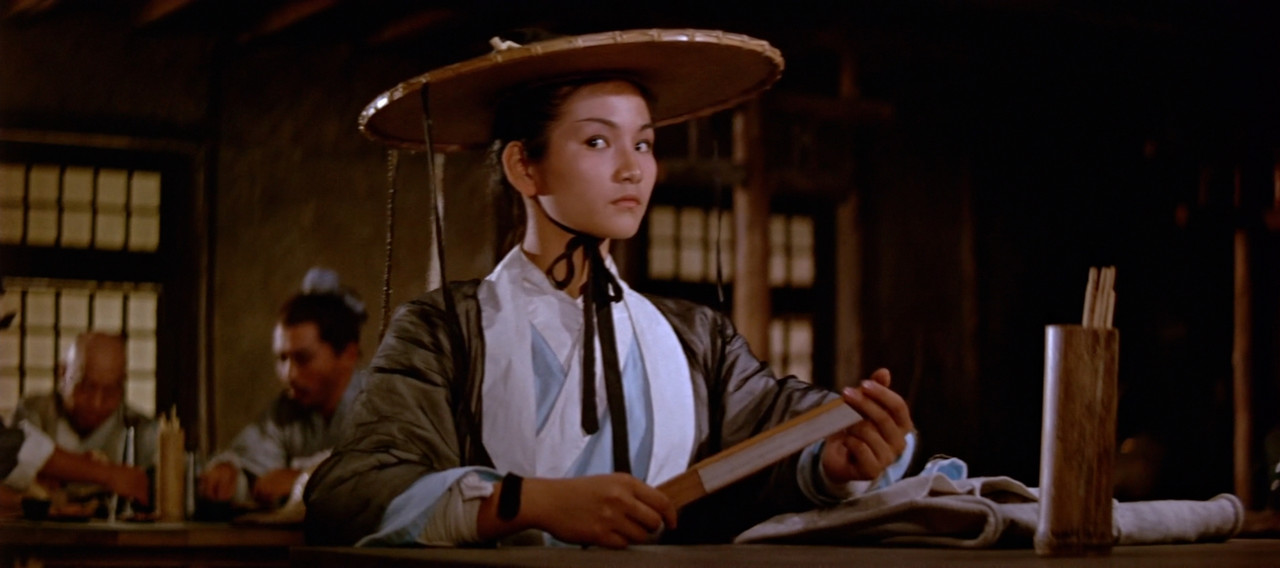
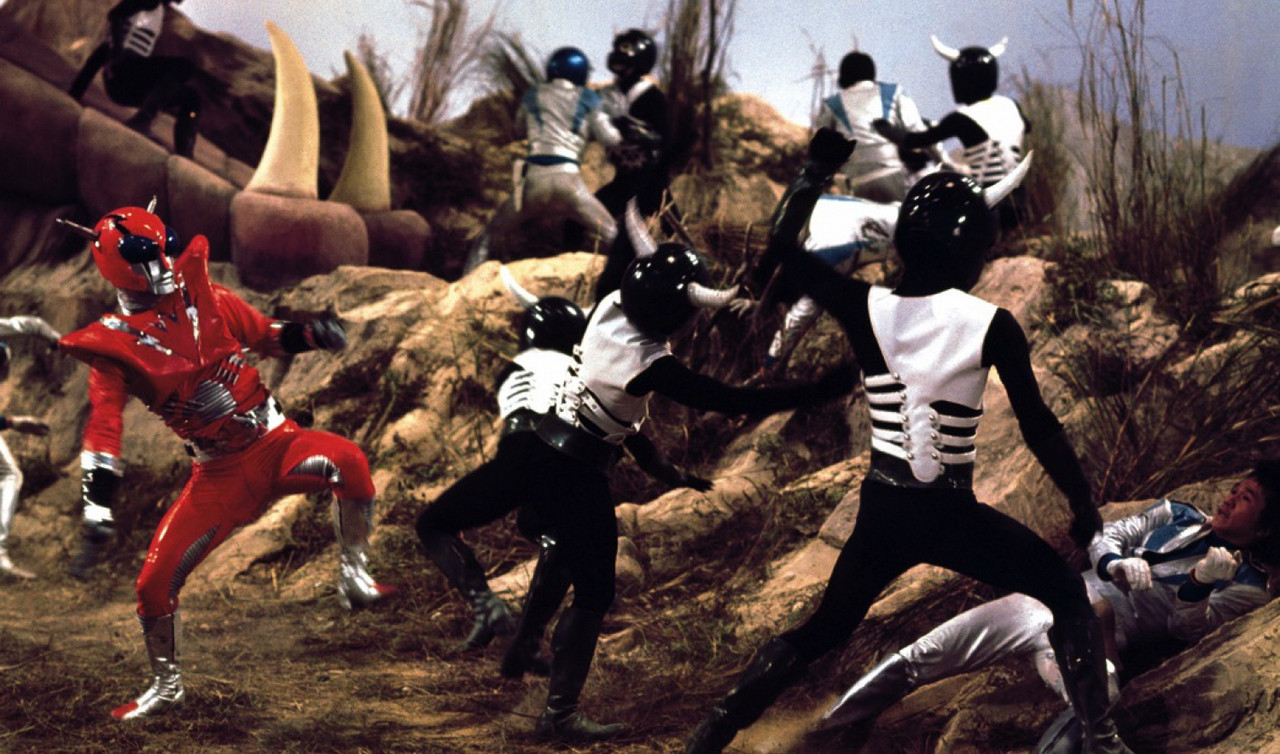
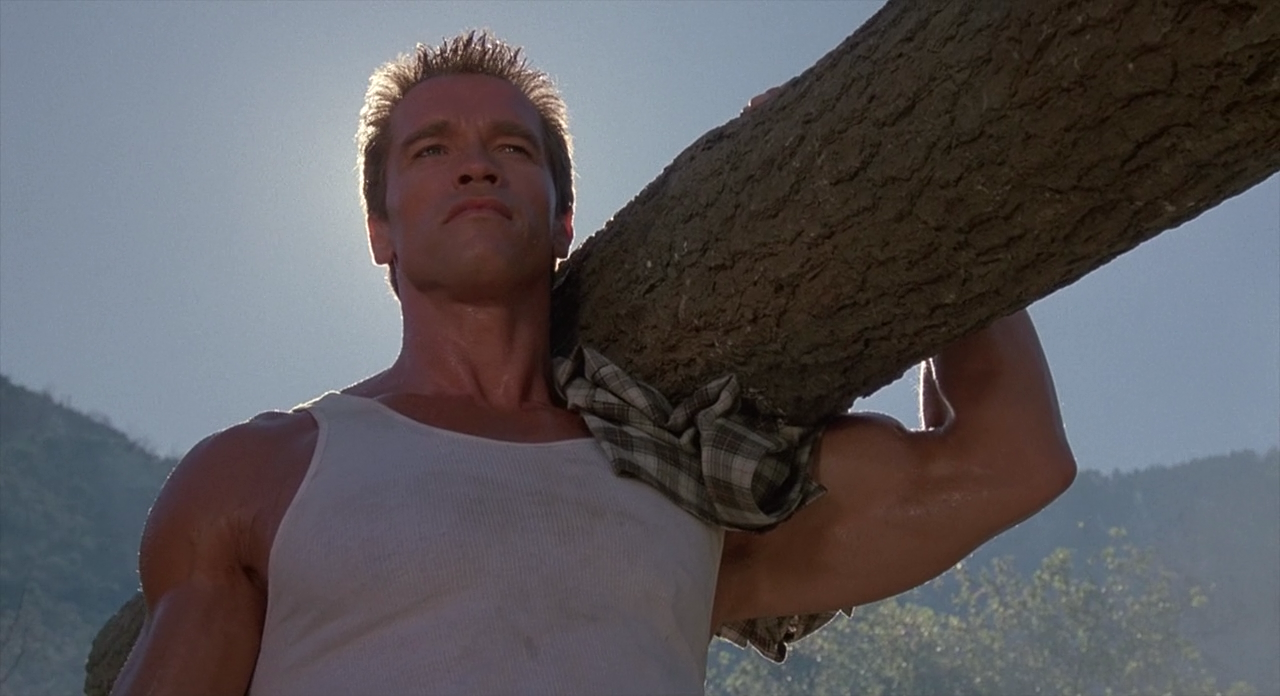
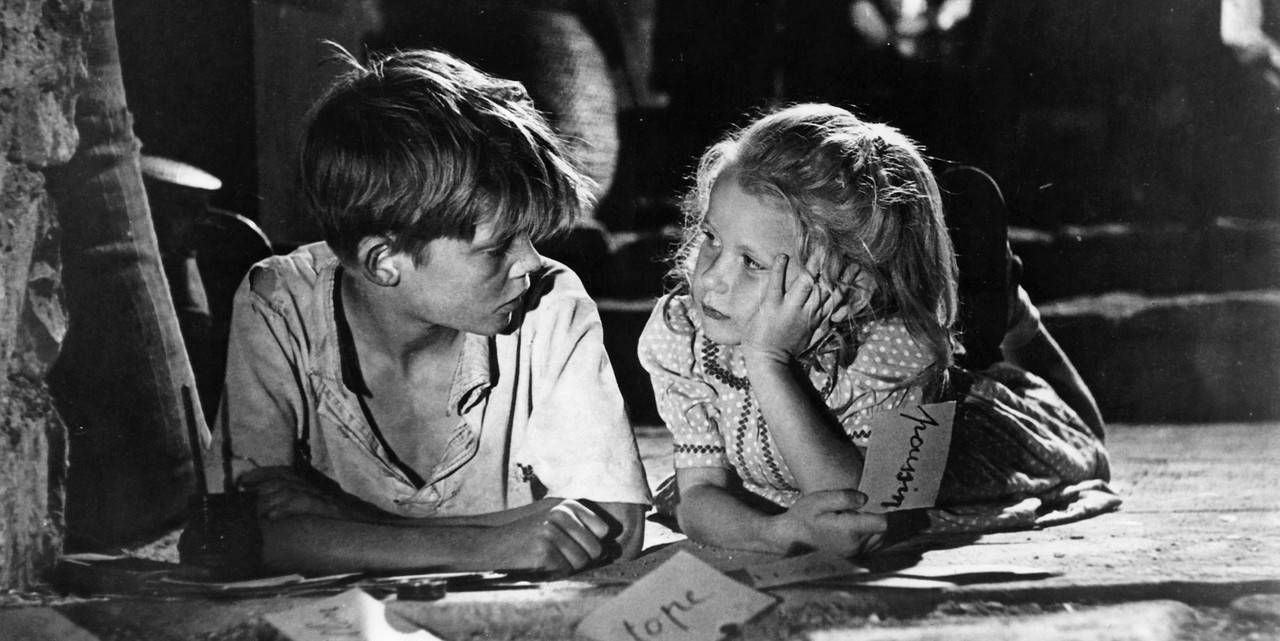
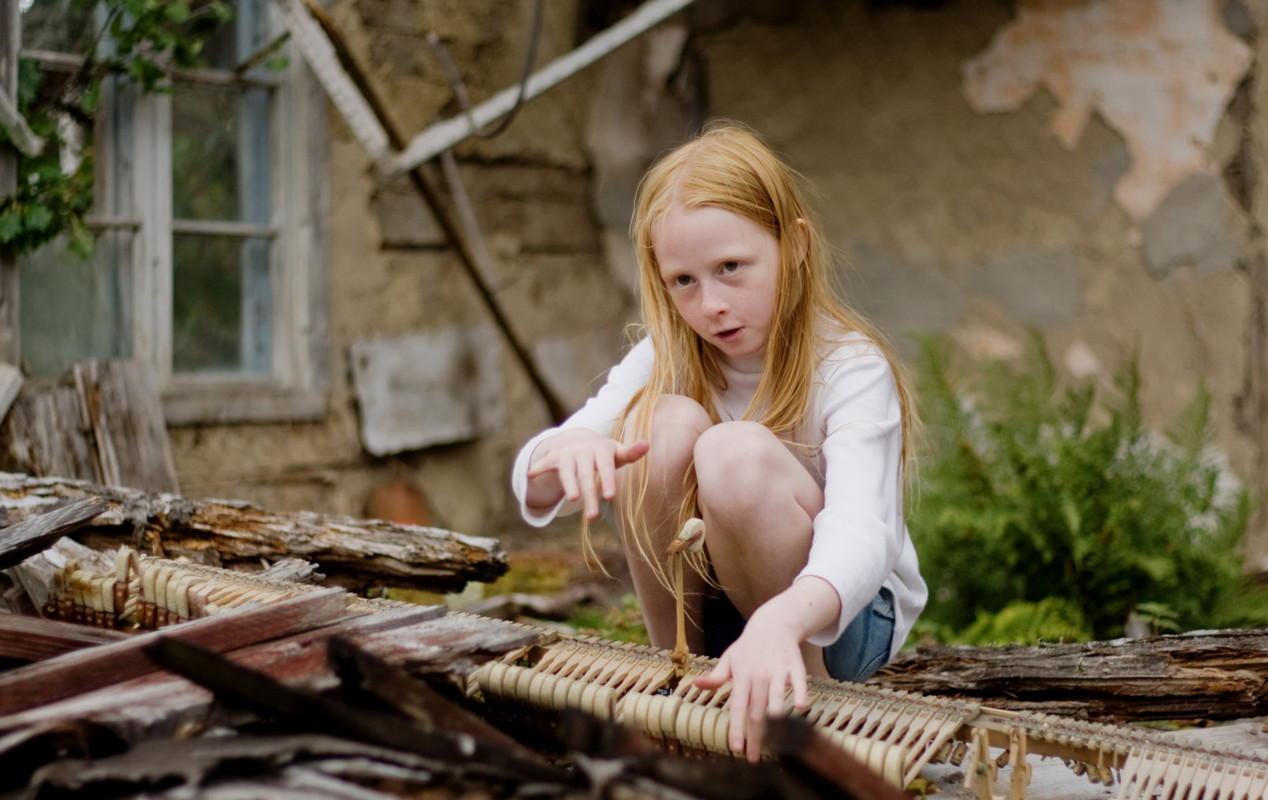
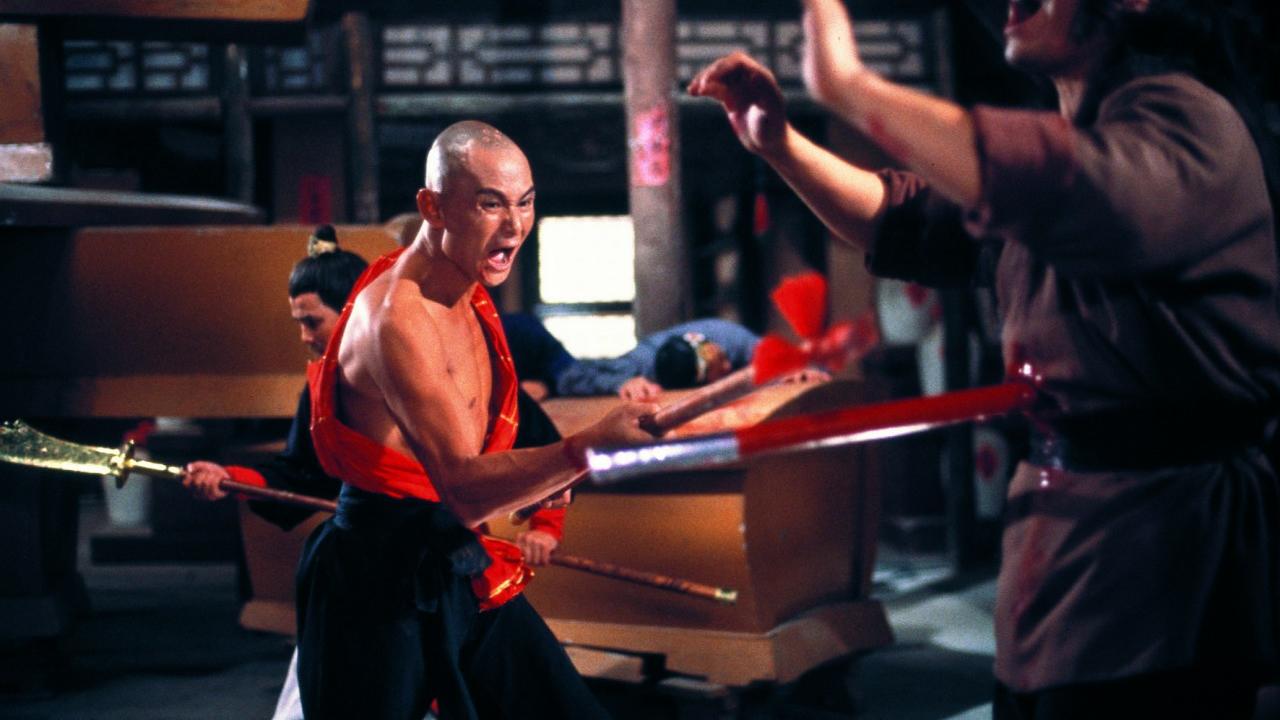
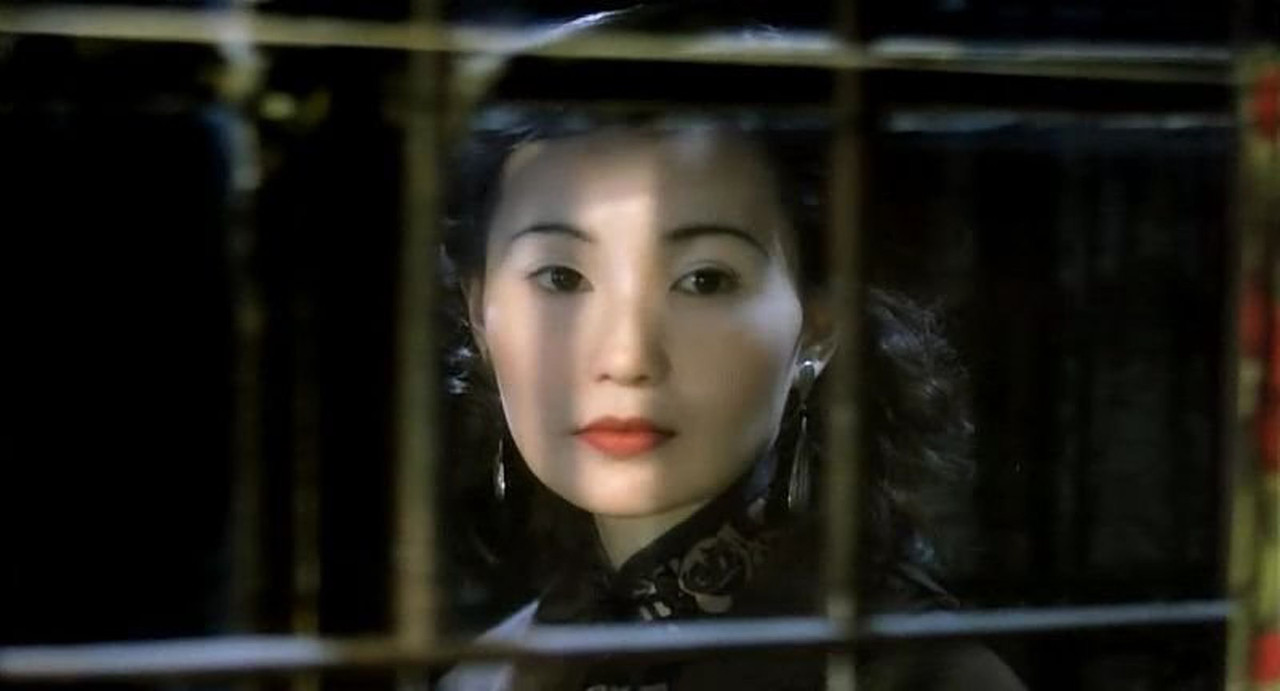
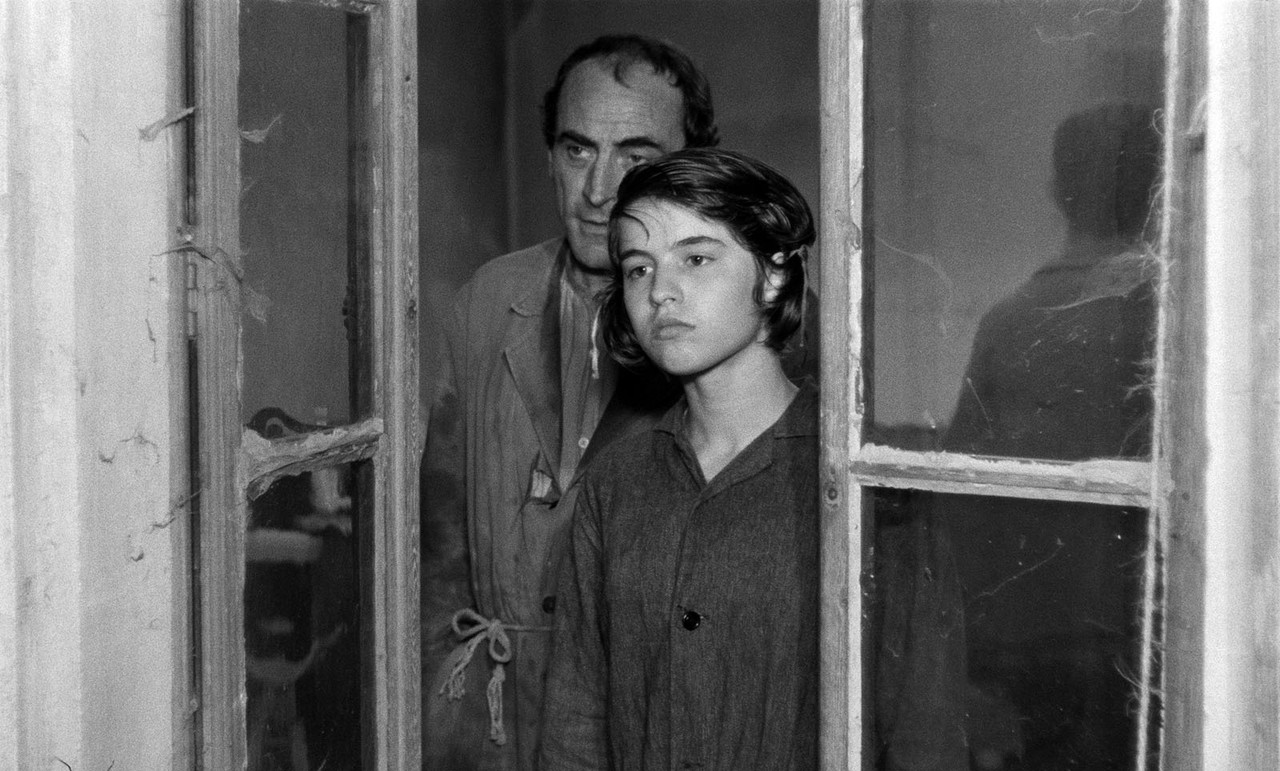
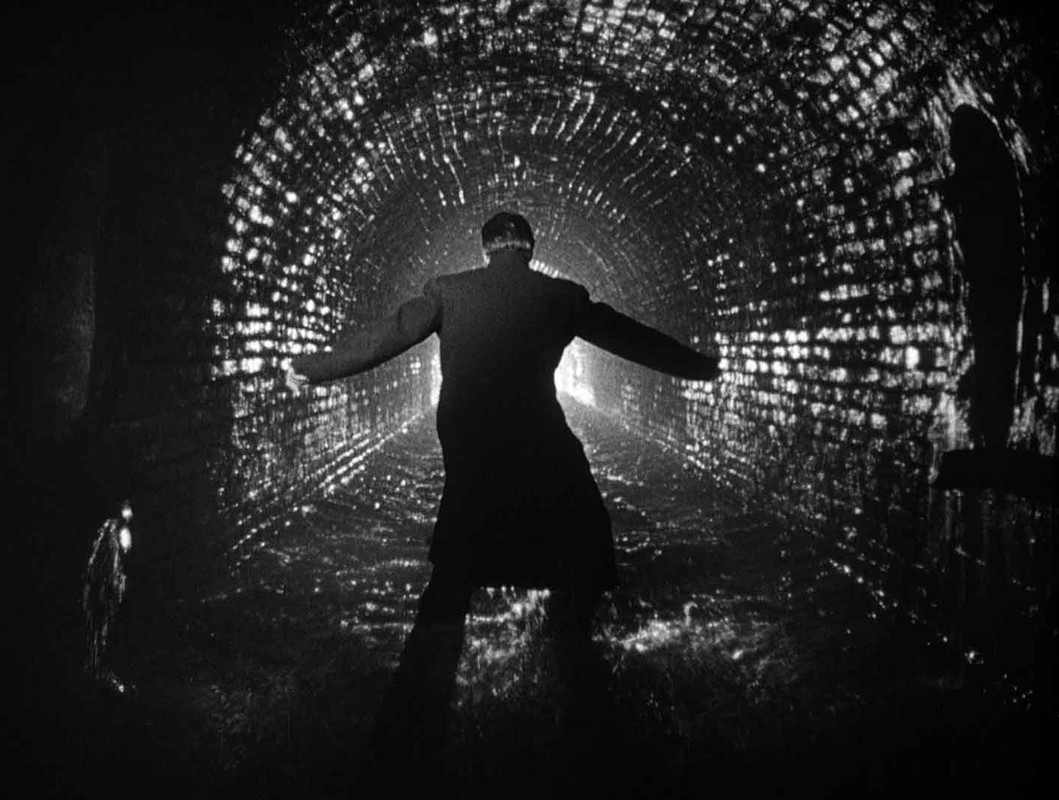
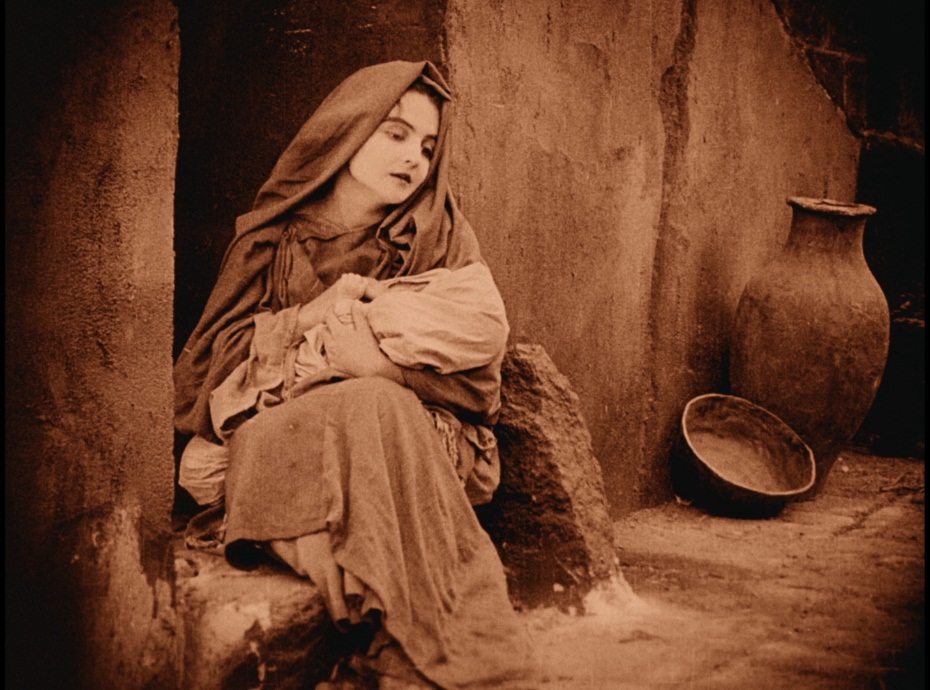
No comments:
Post a Comment